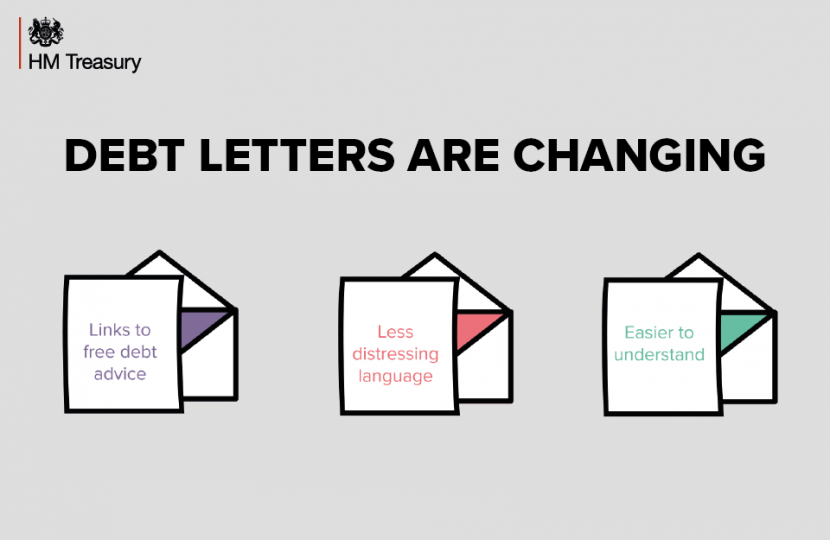
New rules for debt letters will help people to better understand and manage their debts, reducing distress and supporting mental health
The letters borrowers receive from their lenders when they are seriously behind on repayments will be easier to understand and less intimidating as a result of new rules proposed by the Treasury.
Default Notices are designed to give people who are falling behind on their debts fair warning before lenders take further action, but much of the formatting and content has not been updated in nearly 40 years.
Research from the Money and Mental Health Policy Institute and debt charities has shown that large amounts of capitalised text and legal terms can make the information contained in the letter hard to understand, which has the unintended consequence of confusing and distressing people. This has a negative impact on people’s mental health as well as their ability to effectively manage their debt.
As part of the government’s effort to support people in problem debt new legislation will change the language and presentation of information in debt letters. The new rules will make debt letters less threatening by restricting the amount of information that must be made prominent and requiring lenders to use bold or underlined text rather than capital letters. Lenders will also now be able to replace legal terms with more widely understood words and letters will clearly signpost people to the best sources of free debt advice.
James said, "Getting behind on your debt repayments is stressful enough without receiving intimidating and confusing letters from your lender. I hope these new rules will help individuals to take control over their finances.
These new rules are the latest in a wide package of support put in place to help people struggling with their finances, especially through coronavirus. This includes £38 million of extra funding to debt advice providers this year and working with lenders and financial regulators to give people access to payment holidays on their mortgages and a range of consumer credit including credit cards, personal loans, motor finance and payday loans.
The government has also given the Financial Conduct Authority strong powers to protect consumers who borrow money, including cracking down on payday lenders, capping the cost of rent-to-own, and taking action on overdraft fees.
The new rules will be delivered through secondary legislation and are expected to come into force in December 2020. All lenders will then be required to make the changes within six months.

